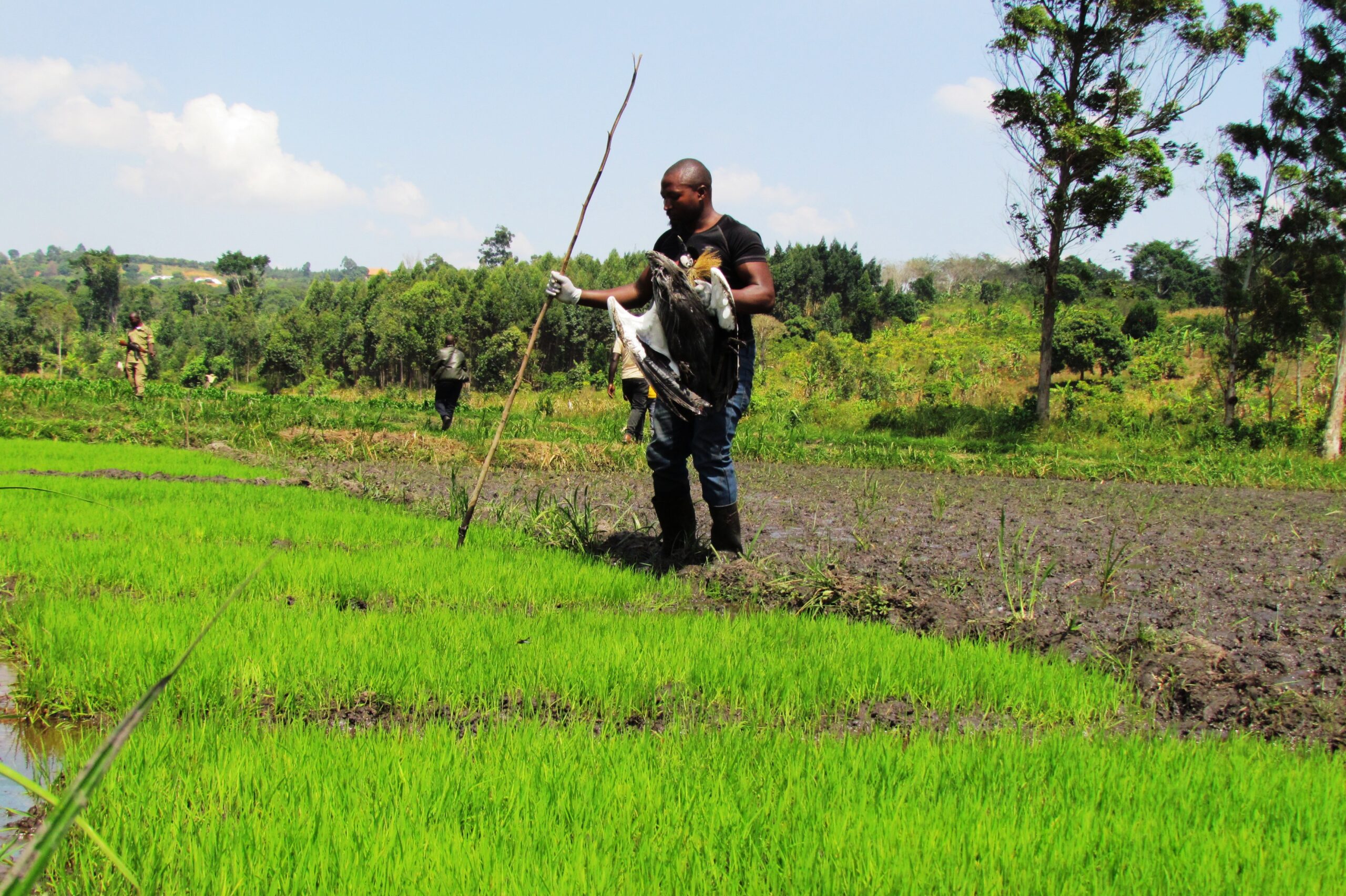MASAKA – In a bid to save crested cranes, the environmental police and local authorities in Greater Masaka have begun to evict farmers from the wetlands considered to be the breeding grounds for the birds and other animal species.
The authorities in the area have embarked on destroying crop plantations in a campaign aimed at restoring the degraded wetlands. They started with Bulayi wetland in Masaka city where they destroyed illegal plantations for bananas, sugarcane, beans, maize, cassava, and sweet potatoes.
This follows a recent incident where 11 crested cranes were poisoned to death by farmers in Kikonge wetland in Kkingo Subcounty. It is said farmers killed the treasured birds for allegedly feeding on the rice and maize.
Masaka regional environmental police commander, Taban Chiliga said farmers who encroached on the wetlands use pesticides to kill these rare bird species.
”Wetlands are breeding sanctuary of birds but uncontrolled human activities have led to rampant degradation of wetlands,” Chiliga said.
Chiliga said wetlands have been encroached on for clay and sand mining as well as agricultural activities. He said punitive actions would be taken against the habitual wetland encroachers as stipulated in the Uganda Wildlife Act, 2019.
Masaka district senior environmental officer, Bruno Kiyimba said Masaka rural district and the city area is endowed with 320 square kilometres of wetlands but more than 42sq kms have been degraded by human settlement.
Kiyamba however noted that his department lacks adequate funds inadequate funds from government to monitor and enforce environmental regulations.
“We have little funds to fight wetland encroachers and developers who have the desire to derive their livelihoods,” he said.
Kiyimba said they have gazetted wetlands of Nabajjuzi, Nakayiba, Ndyabusole, Kitenga, and Kassooka wetlands, all found in Masaka City.
Other wetlands in the rural district of Masaka are, Kibogera, Mazigo, Mikomago, Buwunde, Kyantale, Gunakwamuka and Nalubabwe found in the sub-counties of Kyanamukaka and Buwunga respectively.
Nabajjuzi wetland, measuring 1,753 hectares, is globally designated under the Ramsar Convention as a potential ecotourism destination for rare animal species like Shoebill, Sitatunga swamp antelope, Papyrus Yellow Warbler, and crested cranes.
Nabajjuzi wetland is also the source of water supply for domestic use in Masaka City where the National Water and Sewerage Corporation [NWSC] treatment plant is built, although destruction of this wetland continues.
Masaka City environment assistant, Henry Kibuuka said many people in the area have acquired land titles in the wetlands for settlement.
https://thecooperator.news/big-loss-as-over-10-crested-cranes-are-poisoned-to-death-in-lwengo/
Buy your copy of thecooperator magazine from one of our country-wide vending points or an e-copy on emag.thecooperator.news
